Fulbright Arctic Initiative Scholars (2018-2019)
Meet the 2018-2019 Arctic Initiative Scholars
| |
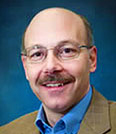 |
Dr. Michael Sfraga
(Co-Lead Scholar)
United States
Director, Polar Initiative
Wilson Center
Co-Director, Institute for Arctic Policy
University of the Arctic
Discipline: Geography |
|
Dr. Mike Sfraga is the director of the Polar Initiative at the Wilson Center. A geographer by training, he is an internationally recognized authority on the geography of Arctic landscapes, Arctic policy, and the impacts and implications of a changing climate on social and political regimes in the Arctic. Dr. Sfraga previously served as vice chancellor at the University of Alaska Fairbanks (UAF) as well as faculty member, department chair, and associate dean in the UAF School of Natural Resources and Extension. He served as co-lead scholar for the inaugural Fulbright Arctic Initiative from 2015-2017, a complementary program to the U.S. Chairmanship of the Arctic Council. He will serve in the same capacity for the Fulbright Arctic Initiative from 2017-2019. Dr. Sfraga also serves as co-director of the University of the Arctic’s Institute for Arctic Policy and is an affiliate faculty member at the International Arctic Research Center at UAF. He holds a Ph.D. in northern studies and geography from the University of Alaska Fairbanks.
|
|
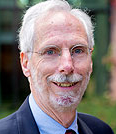 |
Dr. Ross A. Virginia
(Co-Lead Scholar)
United States
Director, Institute of Arctic Studies
Myers Family Professor of Environmental Science,
Dartmouth College
Discipline: Environmental Sciences |
|
Dr. Virginia is the Myers Family Professor of Environmental Science and Director of the Institute of Arctic Studies at Dartmouth College, Hanover, NH, USA. He received his Ph.D. in Ecology from the University of California Davis and previously held positions at the University of California Riverside and San Diego State University. He is an ecosystem ecologist interested in how rapid environmental change affects ecosystems and society. His research seeks to understand how climate change alters soil biodiversity and the cycling of carbon in Arctic and Antarctic ecosystems. He leads the NSF Joint Science Education Project (Greenland) and the Joint Antarctic School Expedition (Chile, Antarctica) to train and inspire the future generation of international polar scientists. He also studies the relationships between the disciplines of ecology, ecosystem science, and environmental law and policy. He is active in Arctic policy and global environmental issues as co-director of the University of the Arctic Institute for Arctic Policy, as a global fellow in the Wilson Center’s Polar Initiative, and as a member of the board of governors for Ilismatusarfik, the University of Greenland.
|
|
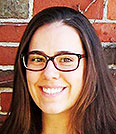 |
Dr. Eleanor Bors
United States
Postdoctoral Scholar, Marine Mammal Institute
Oregon State University
Discipline: Biology |
|
Eleanor “Ellie” Bors is a marine biologist with policy experience whose research has spanned numerous environments from the deep sea to coastal waters. Her research has an emphasis on the use of genetics to better understand population dynamics and evolution. Her Fulbright Arctic Initiative project will explore both the biological and policy implications of shifting distributions of Arctic fish stocks. Ellie is currently a Postdoctoral Scholar in the Marine Mammal Institute at Oregon State University, where she is developing molecular biology methods to age Cook Inlet beluga whales. In 2017, Ellie was a Knauss Marine Policy Fellow in the National Oceanic and Atmospheric Administration’s Office of International Affairs in Washington, DC. She holds a Ph.D. from the MIT-Woods Hole Oceanographic Institution Joint Program in Oceanography.
|
|
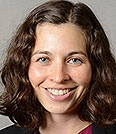 |
Dr. Katie Cueva
United States
Adjunct Assistant Professor, Institute of Social and Economic Research University of Alaska, Anchorage
Discipline: Public Health |
|
Dr. Cueva works in partnership with Alaska Native and American Indian communities through participatory action research. She is interested in social determinants of health in the circumpolar north, culturally appropriate health promotion, and advancing health equity. She is an Adjunct Assistant Professor of Public Policy and Health at the Institute of Social and Economic Research, as well as a CDC/CSTE Applied Epidemiology Fellow in the Alaska Section of Chronic Disease Prevention and Health Promotion, and Associate Faculty at the Johns Hopkins Center for American Indian Health. She has a Master's of Public Health from Johns Hopkins and a dual doctoral degree from Harvard T.H. Chan School of Public Health in Nutrition and Social and Behavioral Sciences. Dr. Cueva is an avid dancer, hiker, and cross country skier.
|
|
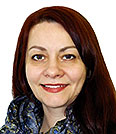 |
Dr. Elena Gladun
Russia
Associate Professor, Institute of State and Law
University of Tyumen
Discipline: Law |
|
Elena Gladun has been teaching at the University of Tyumen since 1999. She teaches Natural Resource Law, Environmental Law, and Global Environmental Management. Elena launched and coordinates the “STEP into Russian Energy: social, technological, environmental, political” program for international students. She has participated in the Russian Fulbright Summer School in Sustainable Development of Arctic Regions, a civic education project, and other international research and educational projects. She is the UArctic coordinator at her home university, and is the leader of “Way to the North” International Summer School. For the last 15 years the focus of her research has been the northern indigenous peoples and legal regulations of the Arctic. The results of her research are published in the Yearbook of Polar Law, Land Use Policy Journal, and other publications.
|
|
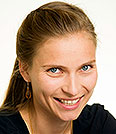 |
Dr. Daria Gritsenko
Finland
Assistant Professor, Aleksanteri Institute and HELDIG
University of Helsinki
Discipline: Public Policy
|
|
Daria Gritsenko studied in St. Petersburg, Hamburg, Turku, and Helsinki, and currently works as an assistant professor at the University of Helsinki. Daria’s major scholarly focus is on maritime transportation and energy, in particular on policymaking activities of private actors, environmental sustainability, and large infrastructure governance in the Russian Arctic. Her work has been published in international peer-reviewed journals, including Energy Policy, Marine Policy, Maritime Policy and Management, Energy Research and Social Science, and professional magazines. Her on-going research project applies big data methodologies to explore the future of renewable energy in Russian regions. Daria is the founder and coordinator of the Digital Russia Studies, an international and interdisciplinary network of scholars and students who share the interest in combining data science and social sciences.
|
|
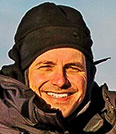 |
Dr. Sean Guistini
Canada
Manager, Nunavut Arctic College Media
Department of Language and Culture, Nunavut Arctic College
Discipline: Anthropology |
|
Sean Guistini is the manager of Nunavut Arctic College Media (NAC Media), which was established in April 2015 to create learning resources for Nunavummiut and others with interest in Inuit and Arctic histories, cultures, and languages. NAC Media’s work includes book publishing, film production, oral history documentation, and digital archiving. Sean’s Fulbright Arctic Initiative research will focus on the further enhancement of the digital archive, which was activated to support cultural preservation, teaching, research, resource and policy development, governance, and most recently, repatriation. Sean’s research will include further inquiry into ownership rights, accessibility platforms, digital repatriation, and frameworks for community & kin consultation. Sean lives and works in Iqaluit, Nunavut.
|
|
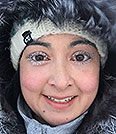 |
Dr. Gwen Healey
Canada
Co-Founder, Executive and Scientific Director
Quajigiartiit Health Research Center
Discipline: Public Health |
|
Dr. Gwen Healey was born and raised in Iqaluit, Nunavut, and it is in this community that she continues to live, work, and raise her family. Gwen is co-founder and Executive and Scientific Director of the Qaujigiartiit Health Research Centre in Iqaluit, NU. She holds a Master’s degree in Epidemiology & Community Health Sciences from the University of Calgary and a Ph.D. in Public Health from the University of Toronto. Dr. Healey co-founded the Qaujigiartiit Health Research Centre to enable health research to be conducted locally, by northerners, and with communities in a supportive, safe, culturally-responsive, and ethical environment. Since Qaujigiartiit's inception in 2006, it has successfully brought over $16 million dollars in research and training grants into Nunavut, and more than 800 Nunavummiut have led, partnered on, or participated in research projects and training workshops in Nunavut during that time. All the data has remained in Nunavut, and much has been published in peer-reviewed and non-peer-reviewed literature. In her spare time, Gwen sews and beads mitts and parkas for her family, swims at the Iqaluit pool, and volunteers in her community.
|
|
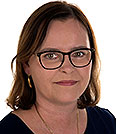 |
Dr. Lara Johannsdottir
Iceland
Associate Professor, School of Business
University of Iceland
Discipline: Business |
|
Lara Johannsdottir is an Associate Professor in the Program for Environment and Natural Resources at the University of Iceland (UI) School of Business. She holds a Ph.D. from UI, and a Master's in Business Administration (with honors) from Thunderbird School of Global Management. Dr. Johannsdottir is a board member for the Institute for Business Research, the board of the UI research fund, and heads the School of Social Sciences evaluation committee. Her papers have been published by the Journal of Cleaner Production, Environmental Science and Policy, Renewable and Sustainable Energy Reviews, Polar Record, and others. Her research focus is the finance sector, corporate social responsibility, and sustainability. Dr. Johannsdottir has 14 years of working experience in the Icelandic insurance sector, and she has been a board member of an occupational pension fund since 2011.
|
|
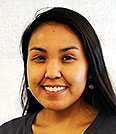 |
Nicole Kanayurak
United States
Assistant to the Director, North Slope Borough
Department of Wildlife Management
Discipline: Interdisciplinary Studies |
|
Nicole Kanayurak, Kannik, is Inupiaq from Utqiaġvik, Alaska. Nicole works on wildlife management at the North Slope Borough. Prior to returning to Utqiaġvik at the beginning of this year, Nicole conducted a fellowship in Washington D.C. with the National Marine Fisheries Service in International Fisheries. Nicole is interested in how the newly installed telecommunications infrastructure on the North Slope could foster food security and sustainable economies. She has research experience in living marine resource governance across scales. Nicole enjoys engaging in Indigenous co-management of natural resources in the Arctic. Recently she has been involved in developing Inuit polar bear co-management. Her advocacy work has enabled her to serve as a representative for Inuit youth, and be involved in addressing increased Arctic activity.
|
|
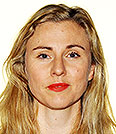 |
Dr. Christina Larsen
Denmark
Senior Advisor, Research Director, Center for Public Health (Greenland)
National Institute of Public Health, University of Southern Denmark
Discipline: Public Health |
|
Dr. Larsen is a sociologist by training (University of Copenhagen, 2006) and completed her Ph.D. in Public Health at the University of Southern Denmark in 2014. She has lived and worked in the Arctic with her family since 2006. She is the research director of the Centre for Public Health in Greenland based in Copenhagen, responsible for large population-based surveys conducted every four years in Greenland, and the research based consultant for the Greenland Ministry of Health. Her research interests include social inequality in health, mental health and resilience, youth, suicide prevention, and the influence of ongoing social transition on the health of the Greenland Inuit. Based on countrywide population-based health surveys, she works with social epidemiological research to improve our understanding of health among indigenous populations in the Arctic. Furthermore, her ambition is to move public health research in Greenland into a more community-based direction, with a focus on interventions, as well as building and strengthening local capacities.
|
|
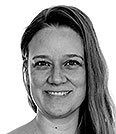 |
Dr. Sanne Larsen
Denmark
Associate Professor, Department of Planning
Aalborg University
The Danish Centre for Environmental Assessment
Discipline: Engineering |
|
Sanne Larsen’s research lies within a framework of sustainable development, planning, and environmental impact assessment, mainly based in Denmark and Greenland, branching out into other Arctic nations. One of her research focus points is handling uncertainty in environmental impact assessment and decision-making, and what role local knowledge can play in this- particularly in the Arctic. Sanne teaches at the bachelor's and master's level and is program coordinator for the bachelor program in Urban-, Energy- and Environmental Planning. Sanne lives in Copenhagen, where she enjoys her allotment garden and a passion for Argentine tango.
|
|
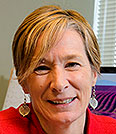 |
Dr. Josée Lavoie
Canada
Director, Indigenous Institute of Health and Healing
Professor, Department of Community Health Sciences
University of Manitoba
Discipline: Public Policy |
|
Josée Lavoie is of French-Québec ancestry, and grew up in northern Québec isolated communities. She has been at the University of Manitoba since 2014, and maintains a university appointment at the University of Northern British Columbia. Prior to undertaking her Ph.D., Josée spent 12 years working for First Nation and Inuit managed primary health care systems. She has research expertise in health policy, financing, and contracting in health. She has been involved in the development of optimal models of contracting in health in Indigenous environments in Canada, Australia, and New Zealand, in partnership with Indigenous organizations. She has also worked in Norway and Colombia.
|
|
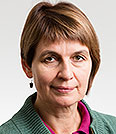 |
Dr. Soili Nysten-Haarala
Finland
Professor
University of Lapland
Discipline: Law |
|
Soili Nysten-Haarala’s interest in legal studies is interdisciplinary, combining law, economics, and social sciences. In contract studies, her main field of interest is the design of contracts in business, especially in governing megaprojects. From 2004 onwards, she has led or participated in research projects concerning natural resource governance in the Arctic, focusing on forest and extractive industries. Currently Soili’s main interest is in comparing corporate social responsibility and benefit sharing schemes of resource extracting industries in the Arctic. The focus is on economic, social, and environmental sustainability of private versus public governance. Participatory and land rights of indigenous people form the core of this focus. She has about 100 publications on Russian law and transition, natural resource governance, and contracting and proactive law.
|
|
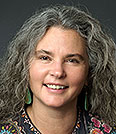 |
Dr. Elizabeth Rink
United States
Associate Professor, Department of Health and Human Development
Montana State University
Discipline: Public Health |
|
Dr. Rink conducts community based participatory research with Indigenous communities in Montana, Greenland, and Finland to address the socio-ecological determinants of sexual and reproductive health. She is particularly interested in the extent to which colonialism, historical loss and trauma, structural violence, and climate change impact sexual and reproductive health disparities in Arctic Indigenous communities. Dr. Rink is a researcher with the Center of American Indian and Rural Health at Montana State University and a research mentor in the Montana–Alaska American Indian/Alaska Native Center for Clinical and Translational Research. Dr. Rink’s research has received funding from the U.S. Office of Population Affairs, the National Science Foundation, and the National Institute of Health. Dr. Rink is a passionate outdoorswoman, disciplined yogini, striving Montanan gardener, and aspiring weaver.
|
|
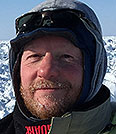 |
Dr. Todd Sformo
United States
Wildlife Biologist, North Slope Borough
Department of Wildlife Management
Research Scientist, Institute of Arctic Biology
University of Alaska, Fairbanks
Discipline: Biology |
|
Todd Sformo is a Wildlife Biologist with the North Slope Borough of the Department of Wildlife Management (NSB-DWM) in Utqiaġvik (Barrow), Alaska, USA, and a Research Scientist with the University of Alaska Fairbanks (UAF) Institute of Arctic Biology. His focus is in animal physiology and low-temperature biology. Todd’s position for NSB-DWM includes monitoring the health and abundance of subsistence species for residents of the borough’s eight villages. In particular, he monitors arctic fish, investigates the emergence of freshwater mold Saprolegnia, examines the effect of crude oil on bowhead whale feeding, and is the department’s permit holder on scientific studies on polar bears and walruses. As Chair of the Handicraft Committee for the Migratory Bird Co-Management Council, he helped amend regulations to allow the sale of non-edible migratory bird parts in Native art. As a Research Scientist at UAF’s Institute of Arctic Biology, he continues to investigate overwintering strategies of arctic insects on his own time, including a recent trip to the Argonne National Lab to conduct testing using high-energy x-rays. For the Fulbright Arctic Initiative, Todd will study the mold Saprolegnia in fish as it relates to climate warming.
|
|
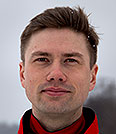 |
Jon Petter Stoor
Sweden
Clinical Psychologist
Sámi Norwegian National Advisory Unit on Mental Health and Substance Abuse
Discipline: Medical Sciences |
|
Jon Petter Stoor, Nilsa Ánde Biehtár, is a Sámi/Swedish clinical psychologist born and raised in the city of Giron/Kiruna and Laeváš Sámi reindeer herding community in Arctic Sweden. He lives in Umeå, Sweden, and is the proud father of two girls. Stoor researches cultural and contextual aspects of suicide among Sámi, particularly young men, in Norway and Sweden. In recent years, he has worked on psychosocial health issues on behalf of the Sámi Parliament in Sweden, and written a plan for suicide prevention among Sámi on behalf of Sámi Norwegian National Advisory Unit on Mental Health and Substance Abuse and the Saami Council. Stoor has also been engaged in international suicide prevention projects for Indigenous peoples in the Arctic, and he is a board member of the International Union for Circumpolar Health.
|
|
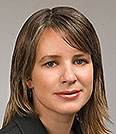 |
Dr. Svetlana Tulaeva
Russia
Assistant Professor, Department of Comparative Political Studies
North-West Institute of Management
Russian Presidential Academy of National Economy and Public Administration
Discipline: Social Sciences |
|
Svetlana Tulaeva holds a Ph.D. in Legislative Studies from the University of Eastern Finland and Ph.D. (Candidate of Sciences) in sociology from St. Petersburg State University. Her dissertation topics were devoted to the implementation of global standards in Russian forest and oil sectors. She has participated in international research projects concerning the role of non-state actors in the governance of natural resources, and investigated interactions between oil corporations and indigenous communities in the Russian Arctic. Her Fulbright Arctic Initiative project will examine an array of new governance instruments developed and implemented by state and non-state actors in order to increase sustainability of local communities in the Arctic.
|
|


